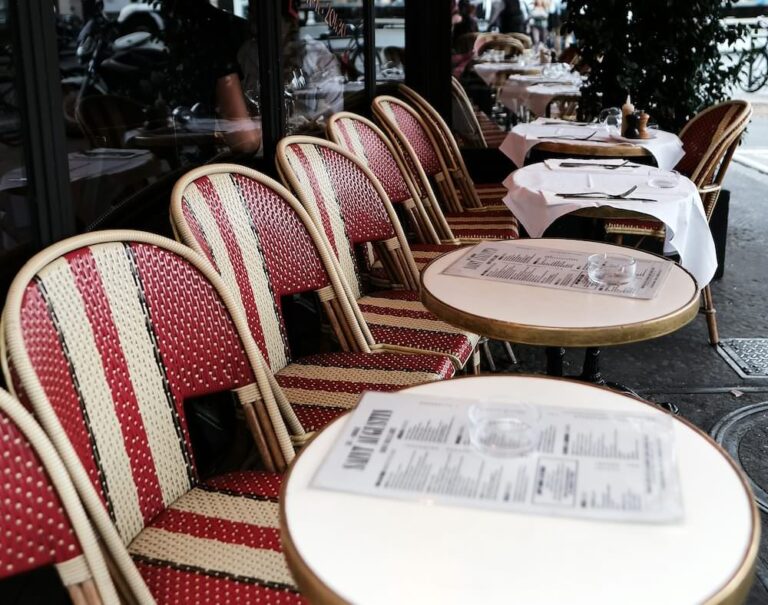however
The English word “however” can have different meanings depending on context. It may contrast with a previous statement (“but, nevertheless”), introduce a restriction (“yet, all the same”), or express degree (“no matter how”). French uses several different words and phrases to cover these meanings.
“Cependant”
“Ceppendant” is the most common translation of “however” in formal writing. It often appears at the beginning of a sentence or after a pause.
Examples:
- Cependant, il a refusé de venir. = However, he refused to come.
- J’ai étudié toute la nuit. Cependant, je n’ai pas réussi l’examen. = I studied all night. However, I didn’t pass the exam.
“Pourtant”
“Pourtant” is also frequent. It expresses a stronger sense of contradiction, often with surprise or insistence.
Examples:
- Il fait froid, pourtant elle sort en tee-shirt. = It is cold, however she goes out in a T-shirt.
- Je lui ai expliqué, pourtant il ne comprend toujours pas. = I explained it to him, however he still does not understand.
“Toutefois”
“Toutefois” is a more formal equivalent of “however,” often used in writing, academic texts, or official contexts.
Examples:
- Cette décision est compréhensible. Toutefois, elle peut avoir des conséquences négatives. = This decision is understandable. However, it may have negative consequences.
- Toutefois, nous devons rester prudents. = However, we must remain cautious.
“Néanmoins”
“Néanmoins” is another formal equivalent. It carries a sense close to “nonetheless” or “all the same.”
Examples:
- Ce projet est risqué. Néanmoins, il mérite d’être tenté. = This project is risky. However, it is worth attempting.
- Il était fatigué, néanmoins il a continué à travailler. = He was tired, however he continued to work.
“Mais”
“Mais” is the simple equivalent of “but.” In many everyday contexts, it can replace “however.”
Examples:
- Je voulais venir, mais j’étais malade. = I wanted to come, however I was sick.
- Il a travaillé dur, mais il a échoué. = He worked hard, however he failed.
“Or”
“Or” is often used in written French, especially in argumentation. It sets up a contrast between two ideas, similar to “however,” though in English it is sometimes translated as “yet.”
Examples:
- Il disait qu’il ne viendrait pas. Or, il est arrivé hier. = He said he would not come. However, he arrived yesterday.
- Or, ce n’est pas ce que nous avions prévu. = However, that is not what we had planned.
“En revanche”
“En revanche” expresses contrast with a balancing effect, often better translated as “on the other hand,” but sometimes close to “however.”
Examples:
- Il n’aime pas la ville. En revanche, il adore la campagne. = He does not like the city. However, he loves the countryside.
- Elle n’a pas réussi cet examen. En revanche, elle a eu de très bonnes notes dans les autres matières. = She did not pass this exam. However, she got very good marks in the other subjects.
“Quoi que” and “si … que”
When “however” introduces degree (meaning “no matter how”), French uses “quoi que” followed by the subjunctive, or “si … que.”
Examples:
- Quoi que tu fasses, je resterai ton ami. = However you act, I will remain your friend.
- Quoi qu’il dise, je ne le croirai pas. = However much he says, I will not believe him.
- Si difficile que ce soit, nous devons essayer. = However difficult it may be, we must try.
- Si riche qu’il soit, il n’est pas heureux. = However rich he may be, he is not happy.
Excellent point — quand même is indeed another way to translate “however” in certain contexts. It wasn’t in the list because it tends to be less formal and carries a slightly different flavor, but it’s very common in everyday French. Here’s how it works:
“Quand même”
Quand même is often used in speech. It can mean “however,” “all the same,” or “anyway,” and usually conveys a sense of persistence in spite of an obstacle or contradiction.
Examples:
- Il était fatigué, il est venu quand même. = He was tired, however he came anyway.
- C’est difficile, mais je vais essayer quand même. = It is difficult, however I will try all the same.
- Elle savait que c’était dangereux, elle y est allée quand même. = She knew it was dangerous, however she went anyway.
It is less formal than cependant or néanmoins, but in everyday French it often feels more natural.
Summary of main points
- “Cependant,” “toutefois,” “néanmoins” are formal, often used in writing.
- “Pourtant,” “quand même” and “mais” are common in speech.
- “Or” is typical in structured argumentation.
- “En revanche” emphasizes contrast with a balancing effect.
- “Quoi que” and “si … que” are used when “however” expresses degree or extent.






